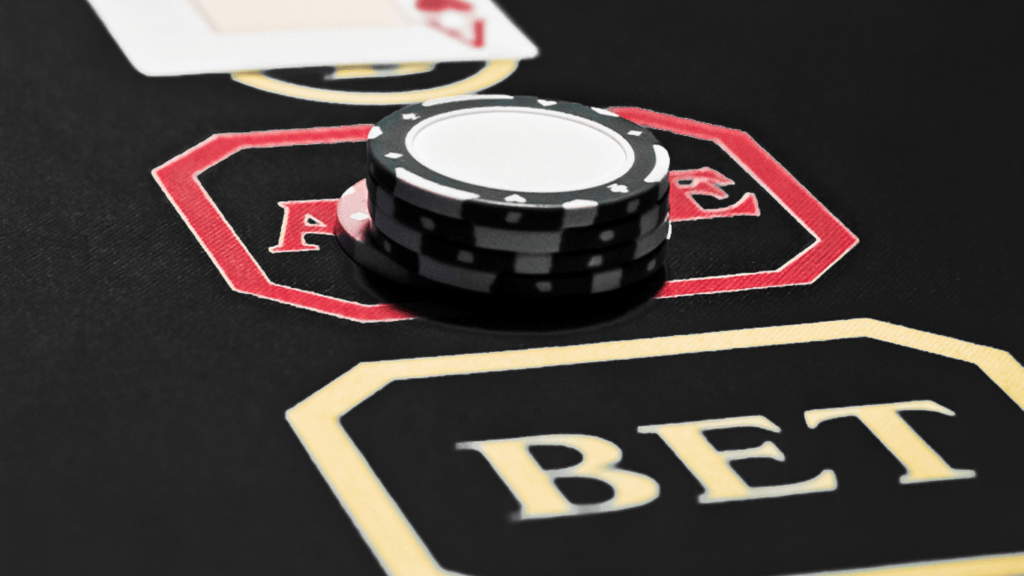Understanding Risk and Reward in Gambling
Risk and reward are inherent elements of gambling. Recognizing their dynamics helps in crafting smart strategies.
Definition of Risk and Reward
Risk in gambling refers to the chance of losing money or assets. It measures the uncertainty and potential financial loss in any betting endeavor. Reward, on the other hand, signifies the potential gain or profit from a bet.
This is the return a gambler aims to achieve over their initial stake. Understanding these definitions clarifies the stakes involved in every wager.
The Psychology Behind Gambling
Psychology plays a pivotal role in gambling. Gamblers often exhibit cognitive biases, such as the illusion of control and the gambler’s fallacy. The illusion of control makes people believe they can influence outcomes through skill or effort, even in games of pure chance.
The gambler’s fallacy leads them to expect that past events affect future probabilities, such as assuming that a losing streak must end soon. These psychological factors can skew perception and decision-making processes, impacting the balance between risk and reward.
Strategies to Balance Risk and Reward
Balancing risk and reward in gambling requires strategic planning and disciplined execution. Below are key strategies to help achieve this balance.
Setting Limits and Budgets
Setting limits and maintaining a budget provide a solid foundation for balanced gambling. I allocate a specific amount of money I can afford to lose and stick to it, ensuring I don’t dip into essential funds. Tracking every bet and its outcome helps maintain clarity on spending. Using tools from online gambling platforms, such as deposit limits and self-exclusion options, supports responsible gaming.
Analyzing Odds and Probabilities
Analyzing odds and probabilities allows for informed betting decisions. I thoroughly study the odds for each game or bet to understand the potential return and risk. Using statistical data and historical performance records, I calculate probabilities and make decisions rooted in logic rather than emotion. Many resources, such as betting calculators and expert analysis sites, help paint a clear picture of potential outcomes.
Knowing When to Walk Away
Knowing when to walk away is crucial for risk management. I set time limits for gambling sessions and adhere to them strictly. If I reach my loss limit or a pre-determined win goal, I stop. Recognizing signs of fatigue or frustration ensures I don’t make rash decisions. This practice helps preserve winnings and prevents chasing losses, which often leads to further financial harm.
Types of Gambling and Their Risk-Reward Profiles

Understanding different forms of gambling helps in balancing risk and reward. Each type comes with unique risk-reward profiles.
Casino Games
Casino games include slots, roulette, blackjack, and baccarat. Each has a house edge, meaning the casino always has a slight advantage.
- Slots: High variance with potential for large payouts but frequent losses.
- Roulette: Risk varies with bets; straight-up bets are high risk/reward, while even-money bets offer lower risk/reward.
- Blackjack: Lower house edge if using strategy, but risks increase with poor decisions.
- Baccarat: Similar to blackjack with slightly higher house edge.
Sports Betting
Sports betting links directly to understanding odds and making informed choices. Risk depends on knowledge and research on teams or outcomes.
- Moneyline Bets: Simple bets on a team’s win, generally lower risk with lower payouts.
- Spread Bets: Riskier due to the point margin; potential for higher rewards.
- Parlay Bets: High risk since one loss means losing the entire bet; offers substantial rewards for multiple correct outcomes.
Poker and Skill-Based Games
Poker and skill-based games like daily fantasy sports rely heavily on player skill and strategy.
- Poker: Balances risk with player proficiency. Skilled players can manage risk effectively and sustain consistent rewards.
- Daily Fantasy Sports: Depends on analytical skills and knowledge of players, offering high rewards for accurate predictions.
Each gambling type presents its own risk-reward profile. By understanding these, gamblers can make more informed and balanced decisions.
Managing Emotions and Impulses
Balancing risk and reward involves more than strategies and statistics. Managing emotions and impulses ensures a more controlled gambling experience.
Recognizing Emotional Triggers
Identifying emotional triggers helps mitigate potential losses. Stress, excitement, or frustration often fuel impulsive decisions. For example, losing a significant amount might lead to an emotional chase to recover losses.
Similarly, a winning streak can create overconfidence, leading to bigger, riskier bets. Understanding these triggers allows gamblers to pause and reconsider their choices, reducing the risk of substantial losses.
Techniques for Impulse Control
Implementing techniques for impulse control maintains a balanced gambling approach. Setting strict time limits for gambling sessions prevents prolonged exposure to high-risk situations.
Taking frequent breaks reduces the likelihood of impulsive decisions. Establishing a clear purpose before each session, whether for entertainment or profit, helps in maintaining focus.
Additionally, utilizing technological tools, such as self-exclusion programs and limit-setting options, provides an extra layer of control and keeps impulsive behaviors in check.
Tools and Resources for Safe Gambling
Using the right tools enhances responsible gambling. These resources promote a balanced approach to risk and reward.
Self-Exclusion Programs
Self-exclusion programs help gamblers regain control by blocking their access to gambling venues and websites. Users can set specific periods, ranging from six months to several years. For instance, in the UK, the GAMSTOP tool enables self-exclusion from all online gambling companies licensed in the country. Implementing these programs, users can take significant steps toward responsible gambling.
Support Groups and Counseling
Support groups and counseling provide emotional and psychological assistance. Groups like Gamblers Anonymous offer community-based support. Counseling services, both online and offline, help individuals address underlying issues and develop coping strategies. For example, connecting with a therapist trained in gambling addiction helps users understand triggers and devise personalized plans to manage behaviors.
Educational Resources
Educational resources offer valuable information on gambling’s risks and rewards. Websites, brochures, and online courses provide insights into odds, house edge, and strategies. The National Council on Problem Gambling offers extensive materials on preventing gambling addiction. Engaging with these resources, gamblers gain knowledge that supports safe and informed decisions.



 Bruce Dadenill – Founder
Bruce Dadenill is the visionary founder of Gamble Wins Daily. With over a decade of experience in the gambling industry, Bruce has a deep understanding of sports betting, risk management, and casino trends. His passion for delivering top-notch content on daily sports picks and gambling strategies has positioned Gamble Wins Daily as a go-to source for enthusiasts. Bruce’s leadership and dedication ensure that the site stays ahead of industry trends, offering readers valuable insights and promotions daily.
Bruce Dadenill – Founder
Bruce Dadenill is the visionary founder of Gamble Wins Daily. With over a decade of experience in the gambling industry, Bruce has a deep understanding of sports betting, risk management, and casino trends. His passion for delivering top-notch content on daily sports picks and gambling strategies has positioned Gamble Wins Daily as a go-to source for enthusiasts. Bruce’s leadership and dedication ensure that the site stays ahead of industry trends, offering readers valuable insights and promotions daily.
